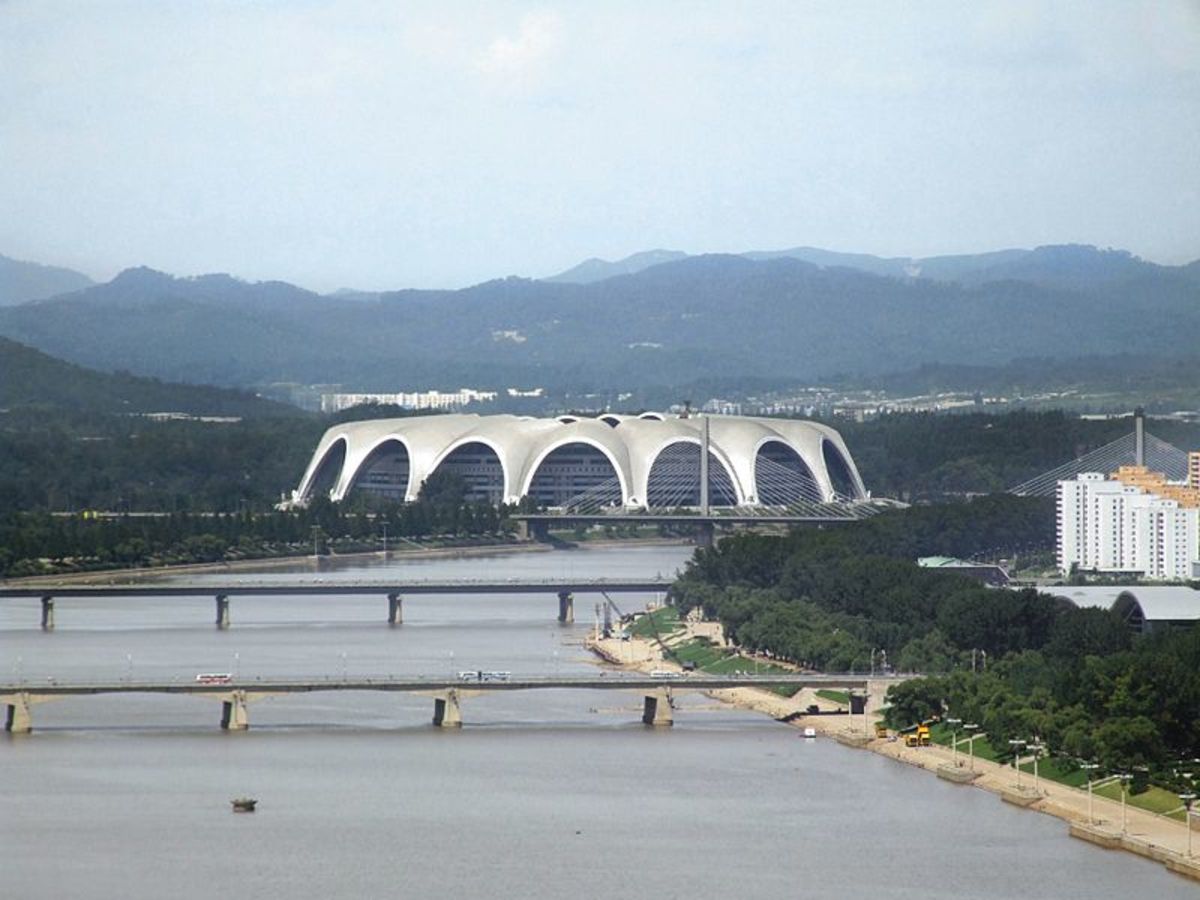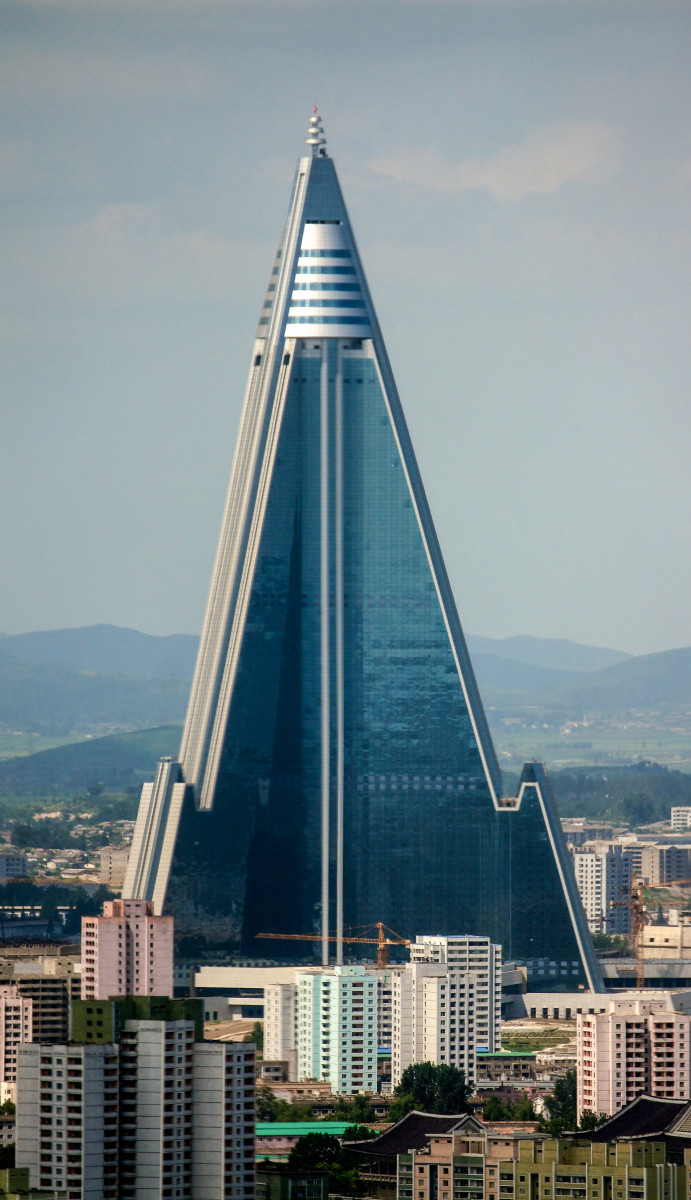The Philosophy of Juche
Juche is a word that is difficult to translate. The North-Korean word was made popular by Kim-il-Sung, the first supreme leader of North Korea. If the word is translated to its nearest English expression it would mean “self-reliance”. Juche is a complex word to translate because it is a complex political philosophy which is unique to North Korea. A blend of Marxism and Confucianism (inherited from the shared Chinese culture), it is also influenced by Japanese Imperialism and Korean nationalism.
At its barest form, Juche denotes that North Korea is a civilizational state with its distinct history and culture which is separate from other nations. In order to safeguard its culture, the nation must remain separate from the rest of the world ideologically, politically and culturally. To accomplish this self-segregation the nation has to depend solely on its own strength with guidance from its demagogue leader. Since its inception, Juche espoused three kinds of autonomy - ideological, economic and military. Though North Korea had to depend on the Soviets for economic subsidy during the cold war.
In time, Juche also embraced the theory of North Korean racial purity. They are taught that first humans emerged in North Korea which makes them superior to other countries because they have been able to preserve their racial purity. Juche also loans some critical philosophical tenets from Confucianism. It teaches that only humans beings who possess the correct frame of mind can transform the world into a utopian state. It dictates that only the leader (suryong) is the one who possesses that unique power to change and control the destiny of the state. Hence it is the duty of the citizens to align their will to the will of the leader. Fealty to the leader is one of the ideological cornerstones of Juche.
Juche in the Media
North Korea maintains tight control over its media. People are only allowed access to information when it has been vetted by the Supreme leader or his cabinet. It allows the leader to have absolute control over the minds of the population. Citizens, who are completely detached from the outside world and dependent on state-run media for information are gullible to believe that the Supreme leader is a demigod capable of divine feats.
The fluidity of the theory of Juche has a unique advantage for the Kim family. Grossly translated as “self-reliance”, it can be moulded to mean virtually anything as per the whims of the leader. The leaders can formulate arbitrary policies in the name of achieving “self-reliance”. The policies are generally political manifestations of the will of the leader.
The Downturn
After the explosion at Chernobyl Nuclear Plant in 1986, the murmurs about the impending collapse of the Soviet Union grew. North Korea, despite its staunch adherence to the Juche policy, was heavily dependent on subsidies from the Soviet Union, particularly for its farming sector.
North Korea does not have much of arable land and it was dependent on Soviet supports to meet the nutritional requirements of its citizens. Moreover, subsidized fuel and other industrial raw materials were also imported from the Soviet Union at subsidized rates.
Final Attempts to Salvage Honour
Due to the dwindling Soviet economy during the late 80s, the subsidies to North Korea eventually dried up. Kim-il-Sung realized that he needed alternative streams of revenue other than the Soviet hand-outs. Invariably, he doubled-down on the philosophy of Juche and amplified it as a political theory to attract foreign investments. His primary inspirations for his vision were Singapore and the Seoul Olympics held in South Korea in 1988.
For its preparations, North Korea diverted almost a quarter of the country’s yearly budget to the 13th World Festival of Youth and Students. It took four years of preparations for the event. Many analysts now see it as a reaction to the Seoul Olympics of 1988 which North Korea boycotted. The government built extravagant stadiums, including the Rungrado May Day Stadium which was the largest stadium in the world of any kind. Nearly 22,000 people from 177 countries took part in that quasi-olympics. This was the last festival that was held before the fall of communism in the Eastern Bloc during the waves of unrest in 1989.
North Korea diverted billions of dollars of funds for the preparation of the festival. But the failure of the Soviet economy and the festival failing to attract potential foreign investors into the country meant that North Korea’s economy was irreparably damaged. By 1990, North Korea had five billion dollars in debt to foreign creditors. Hence, it was labelled as a failed economy.

Rungrado May Day Stadium
The Ryugyong
There was another project that caused North Korea’s economy to freefall. It is the Ryugyong Hotel. This hotel was commissioned as a response to the Westin Stamford Hotel in Singapore constructed by the South Korean company Ssangyong Group. At that time, it was the tallest hotel in the world and a symbol of Singapore’s stature and South Korea’s ingenuity.
Construction on the Ryugyong Hotel started in 1987. It was to be the tallest hotel of that era if the construction was completed. However, after the fall of the Soviet Union, the flow of funds dried up. In 1992, the building topped out but its construction was halted due to unavailability of funds. By then the North Korean economy had already started moving towards a downward spiral. In the coming decade, the country will face its worst food crisis during which malnutrition would be rampant and (by some accounts) cannibalism would be practised due to scarcity of food.
Though the basic structure of the hotel was finished by 1992, it was never fitted with the inner fittings. By 2019, glass and LED panels had hidden the concrete structure on the hotel, but there are no rooms or any amenities inside the hotel. The glass panels and the LED panel which boldly display North Korean achievements in a city that suffers from regular black-outs due to shortage of electricity, forms a facade over the skeletal structure of the empty hotel. It is the world’s largest unoccupied building at present. The Ryugyong hotel symbolizes a nation which is paranoid about keeping up appearances through a facade in order to hide its broken economy.
Should You Be Worried?
The Ryugyong hotel and the Rungrado May Day Stadium stands as a haunting reminder of the countless lives lost due to the flawed and short-sighted economic policies of a nation. It also serves as a warning sign to other nations to actively try and identify when economic policies are dictated for political gains. “Self-reliance” in resources definitely acts as a boost to the nation’s economy. But it cannot act as political philosophy if it is devoid of all economic sense.
As India seems to have coined its own form of Juche (atmanirbhar), citizens must remain vigilant in order to detect the misuse of the economy to fulfil political aspirations.

 Skip to main content
Skip to main content
Comments
Post a Comment
Please let me know about the quality of content